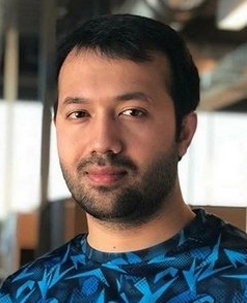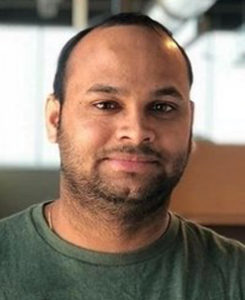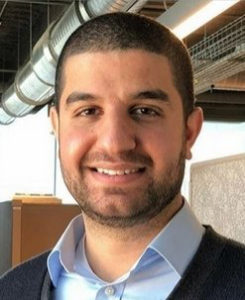DEVIANCE 2020 Workshop on Deviant Activities on Social Media
In conjunction with 2020 IEEE Conference on BigData (IEEE BigData 2020) – Now taking place virtually
December 10th, 2020
Introduction
With the proliferation of smart devices, mobile applications, and social network platforms, the social side effects of these technologies have become more profound, especially in social and political disintegration. Several journalistic and academic investigations have reported that modern communication platforms such as social media (e.g., Twitter, Facebook, blogs, YouTube, and the “deep web” channels) are strategically used to coordinate cyber propaganda campaigns.Several researchers have studied these campaigns and identified various tactics, techniques, and procedures used by various online deviant groups, e.g., online propagandists groups or terrorist groups sympathizers. Various social media platforms utilized the research findings to detect and curb some of these campaigns, however, the techniques that are used evolve and adapt to go undetected. This is a growing problem. In this workshop, our aim is to have a scientific discussion among the experts who study deviantactivities on social media, including but not limited to, detection of deviant/disruptive behaviors on social media; misinformation detection, identification, and dissemination; case studies of misinformation; etc. This includes the following topics:
Program
| Time (Eastern Standard Time) | Title | Presenter/Author |
|---|---|---|
| 1:30pm – 1:40pm | Welcome | |
| 1:40pm – 2:40pm | Keynote – “How Internet Researchers Can Help Platforms Make Sound Decisions About Managing Bad Behavior” | Dr. Amy Bruckman |
| 2:40pm – 3:40pm | Track 1 – Deviant Activities Detection | |
| 2:40pm – 3:00pm | S41205 – Toward A Multilingual and Multimodal Data Repository for COVID-19 Disinformation | Yichuan Li, Bohan Jiang, Kai Shu, and Huan Liu |
| 3:00pm – 3:20 pm | BigD580 – Illicit Activity Detection in Large-Scale Dark and Opaque Web Social Networks | Dhara Shah, Timothy Harrison, Christopher Freas, David Maimon, and Robert Harrison |
| 3:20pm – 3:40pm | BigD663 – How biased are American media outlets? A framework for presentation bias regression | Minh Tran |
| 3:40pm – 3:50pm | Coffee Break | |
| 3:50pm – 4:50pm | Track 2 – Deviant Information Operations and Campaigns | |
| 3:50pm – 4:10pm | S41201 – Understanding Online Information Operations: Development of an Influence Network for Scientific Inquiry Testing Environment (INSITE) | Courtney Crooks, Matthew Canham, Tom McNeil, David Muchlinski, and Ben Sawyer |
| 4:10pm – 4:30pm | BigD554 – Unveiling Ideological Trends Through Data Analytics to Construe National Security Instabilities | Pedro Cardenas Canto, Georgios Theodoropoulos, Boguslaw Obara, and Ibad Kureshi |
| 4:30pm – 4:50pm | S41203 – Profiling Astroturfing Facebook Users During Three Contiguous Israeli Election Periods | Jonathan Schler, Elisheva Bonchek Dokow, Tomer Vainstein, Moshe Gotam, and Mike Teplitsky |
| 4:50pm – 5:50pm | Track 3 – Deviance on Twitter | |
| 4:50pm – 5:10pm | S41202 – Pro-ISIS Tweets Analysis Using Machine Learning Techniques | Julia Thee, Izzat Alsmadi, and Samer Al-khateeb |
| 5:10pm – 5:30pm | S41204 – How to Control Coronavirus Conspiracy Theories in Twitter? A Systems Thinking and Social Networks Modeling Approach | Mustafa Alassad, Muhammad Nihal Hussain, and Nitin Agarwal |
| 5:30pm – 5:50pm | BigD382 – Collecting Domain-Relevant Tweets: Creation and Application of a New Framework | Alina Campan, Traian Marius Truta, Shawn Huesman, Celine Wardrop, and Alyssa Appelman |
| 5:50pm – 6pm | Closing Remarks | |
Research Topics
- Misinformation detection
- Misinformation dissemination strategies
- Cross-platform dissemination
- Hashtag Latching
- Propaganda dissemination
- Deviant behaviors on social media platforms
- Coordination strategies and detection
- Cyber Flash Mobs
- Spamming
- Algorithmic Manipulation such as Recommendation Manipulation
- Inorganic behaviors
- Bots behaviors, evolution, and detection
- Online Trolls detection and strategies,
- Hate Speech (Toxic or polarizing or disruptive content)
- Narratives in misinformation campaigns
**In the light of the COVID-19 pandemic and the upcoming the US. elections, we also solicit papers focused on disinformation and misinformation being disseminated related to these events.**
Important Dates
Submission: August 28 September 11, 2020 (firm deadline)
Notification to authors: October 31 2020
Camera ready due: November 20, 2020
Venue Information
Due to the current COVID-19 pandemic, it is decided that the IEEE BigData conference will be held virtually so does DEVIANCE 2020 Workshop. The workshop sessions will be conducted synchronously using real-time conferencing software. The authors of the workshop must present their papers according to the announced schedule. In order to make sure the sessions run smoothly, we will ask the presenters to pre-record their presentation and upload it to our server a few days before the conference. During the sessions, the session chair will play the pre-recorded video and the presenters will need to be present to answer questions of the attendees in real-time. Every paper needs to have at least one of the paper’s authors attending online to answer questions otherwise their papers will be removed from the IEEE eXplore digital library.
Participants can access the conference virtual platform by visiting https://underline.io/events/56/sessions?eventSessionId=1556. Conference proceedings are available for download under the reception page.
Submission
Full paper manuscripts must be in English with a maximum length of 10 pages (using the IEEE two-column template). Submissions should be in PDF and include the title, author(s), affiliation(s), e-mail address(es) and abstract on the first page.
Workshop papers can be submitted through the submission portal here.
Papers should be formatted to IEEE Computer Society Proceedings Manuscript Formatting Guidelines (see link to “formatting instructions” below).
Formatting Instructions
8.5″ x 11″ (DOC, PDF) LaTex Formatting Macros All papers accepted for the workshop will be included in the Conference Proceedings published by the IEEE Computer Society Press.
Organizing Committee

Muhammad Nihal Hussain
Postdoctoral fellow at COSMOS research lab at University of Arkansas at Little Rockmnhussain@ualr.edu

Kiran Kumar Bandeli
Data Scientist, Walmart Inc.KiranKumar.Bandeli@walmart.com

Samer Al-khateeb
Assistant Professor at Creighton UniversitySamerAl-Khateeb1@creighton.edu

Nitin Agarwal
Director of COSMOS research lab and Distinguished Professor at University of Arkansas at Little Rocknxagarwal@ualr.edu

Thomas Marcoux
Web Chair – Computer and Information Science PhD student at University of Arkansas at Little Rocktxmarcoux@ualr.edu
Program Committee
- Halil Bisgin (University of Michigan-Flint, USA)
- Steven Fernandes (Creighton University, USA)
- Ugur Kursuncu (South Carolina University, USA)
- Huan Liu (Arizona State University, USA)
- Fred Morstatter (University of Southern California, USA)
- Alex F Myers (Creighton University, USA)
- Hemant Purohit (George Mason University, USA)
- Onur Savas (Accenture Federal Services, USA)
- Kai Shu (Arizona State University, USA)
- Marisa Vasconcelos (IBM Research, Brazil)
- Ingmar Weber (Qatar Computing Research Institute, Qatar)
- Terry Williams (University of Central Oklahoma, USA)
Invited Keynote – Dr. Amy Bruckman

Dr. Amy Bruckman is Professor and Associate Chair in the School of Interactive Computing at the Georgia Institute of Technology. Her research focuses on social computing, with interests in collaboration, social movements, content moderation, conspiratorial ideation, and internet research ethics. Bruckman is chair of the ACM CSCW Steering Committee, a member of the ACM Ethics and Plagiarism Committee, and a contributor to the 2018 ACM Code of Ethics and Professional conduct. She is an ACM Fellow and member of the ACM CHI Academy. Bruckman received her Ph.D from MIT Media Lab’s Epistemology and Learning group in 1997, her master of science from Media Lab’s Interactive Cinema Group in 1991, and a B.A in Physics from Harvard University 1987.
